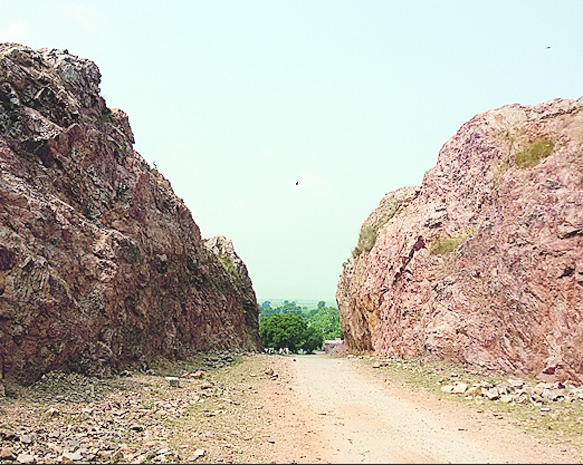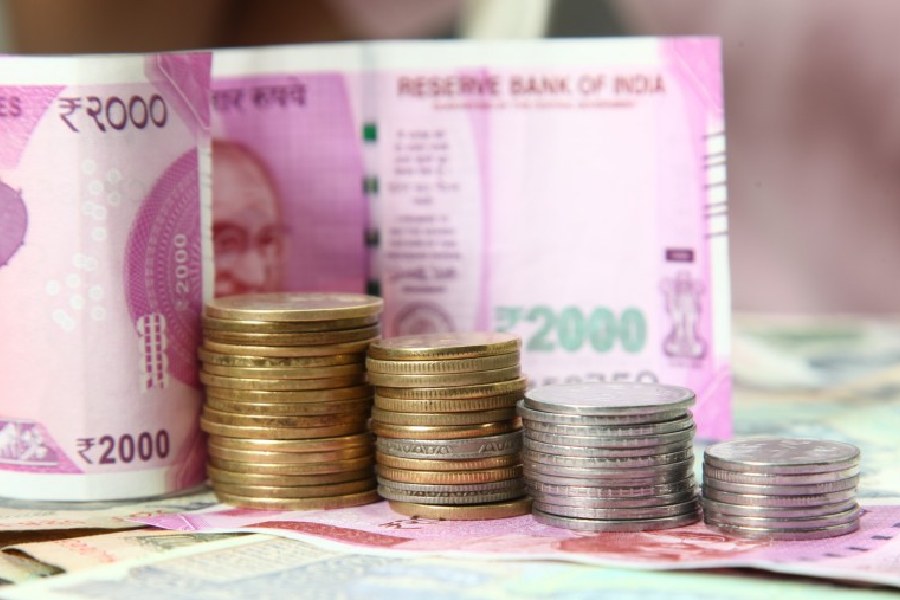
Stories of a heroic figure - one who succeeds against monumental odds - make for timeless classics. Add to that the element of undying love and you have the ingredients needed to build a myth. On a trip to cover the elections in Gehlaur - the birthplace of Dashrath Manjhi, who went to war against a mountain with a hammer and a chisel - I discovered that attempts to dismiss a myth as make believe, which it often is, can undermine the power that it wields over citizens. Manjhi has been turned into a mythical figure in these parts. The cult status that he has attained of late is partly due to the Ketan Mehta biopic that released recently. The other reason why Manjhi has been making headlines is that in poll-bound Bihar nearly every political party is claiming him to be one of its own.
In Gehlaur, the villagers are now used to visits such as mine. The spot where Manjhi tamed a mountain, I was told, had become a shrine for many. In fact, my contact, the self-appointed keeper of the Manjhi myth, went and touched his forehead to the rock face. While I was scribbling notes and taking photographs of the harsh landscape, a passer-by spotted me. His face lit up and he told my companion, "Dashrath toh naam bana liya (Dashrath has made a name for himself)." This was not the first time I had heard someone commenting on Manjhi's sudden fame. On hearing that I intended to visit Gehlaur, the manager of the hotel I was staying in said, "Gehlaur? O Dashrath Manjhi. Woh toh famous ho gaya hai." Manjhi completed his herculean task back in 1982, so what could the reason behind his enduring legacy be?
Perhaps, it could be attributed to the mutually beneficial relationship between myth and a modern democracy. Ironically, democracy's failures - the absence of a road in this instance - help sustain myths. Manjhi had been a farm labourer when his wife, Phalguni Devi, slipped and fell off the Gehlaur hills while getting him his meal. She succumbed to her injuries for the lack of timely medical help - the hills meant that the nearest hospital in Wazirganj was hours away. This marked the beginning of the 22-year-long war that Manjhi waged against the mountain. Those who think that he did it out of love for his wife - Manjhi would have been quick to disabuse them. He is known to have said that he was inspired by his wife, yes, but had he been caught in the trap of his love for her he would not have been able to split a mountain. Manjhi was aware of the import of his task. He used to ask those who complained of hardship, " Pahar torne se bhi mushkil hai kya (Is it tougher than breaking a mountain)?"
The pass that Manjhi cut reduced the distance between Atri - Gehlaur falls under this constituency - and Wazirganj from 75 kilometres to just one. Not satisfied with cutting a pass in the hills, Manjhi rallied on, demanding that the road that he had carved out be cemented, a bridge connecting Atri and Wazirganj be built, and Gehlaur be given a primary hospital. Manjhi went to meet the chief minister, Nitish Kumar, regarding these demands. On meeting Manjhi, in a symbolic gesture, Kumar offered Manjhi the honour of occupying the chief minister's seat. The gesture remains indelible in the mind of the Musahar community to which Manjhi belongs. It is said that he was the first Musahar to 'occupy' the chief ministerial seat. Manjhi died before any of his demands were met. But today, Dashrath Nagar, as Gehlaur is now known, has a bridge connecting it to Wazirganj, a cemented road named Dashrath Manjhi Sarak Path and a primary healthcare facility named after Manjhi.
Musahars constitute 5.5 per cent of Bihar's population. The fight for the Mahadalit vote in Bihar is intense and Manjhi, an icon in Gaya, has been brought back into the limelight. There has been a steady stream of politicians beating a path to his home making tall promises. Politicians exploit the myth surrounding Manjhi to influence popular opinion, nurturing and embellishing it with their retellings. Manjhi's son, Bhagirath, is flooded with invitations to grace podiums at political rallies. While the family enjoys the attention that the elections have brought them, they are also aware of the hollowness of the promises. Manjhi's daughter, Laungi Devi, complained that the vote mongers promise everything but in reality were only making a profit in his name. She and Bhagirath's daughter, Lakshmi Devi, are also unhappy with Bhagirath's decision to be a part of the political rallies. They are aware that Bhagirath has been turned into the means to achieve an end in a vast, and cynical, political enterprise. One of the hopefuls, Pappu Yadav, had a statue of Dashrath Manjhi built in front of the shack which the family calls home. Yadav also gives the family a monthly allowance of 6,000 rupees for their upkeep.
Although Dashrath Manjhi remains Gehlaur's favourite son, undercurrents of envy are apparent within his community. Manjhi's family has gained considerably from the attention and the benevolence of competing political leaders. But the only benefits reaped by the rest of the village have been the healthcare facility and the road. Dashrath Manjhi, said Lakshmi Devi, considered the whole of Bihar to be his family. She is convinced that had her baba been alive, he would have ensured that the village received all the houses that it was supposed to under the Indira Awaas Yojana. The doctor at the primary healthcare facility remains unavailable after two in the afternoon. In case of an emergency late in the night, the villagers have to rush to the nearest town for medical help. Lack of timely medical care, the reason behind Dashrath Manjhi's efforts, remains one of the most difficult problems faced by the community. The 360 feet long stretch of the road that he built remains the way he left it. The road that Kumar's government built - it does not extend up to the pass - is in dire need of repair. Yet, there is a polished marble arch to commemorate Dashrath Manjhi's accomplishment. A memorial is also being built on the site of his final resting place.
Unemployment remains Gehlaur's most pressing problem. Most of the people work as migratory labourers in farmlands and brick kilns. The women in Dashrath Manjhi's family have not been taken in by the prime minister's promises of vikas. Lakshmi Devi says that this time she has made it clear to the candidates that from now on she will only vote for those who fulfil their promises. The grand alliance has fielded Kunti Devi, a Rashtriya Janata Dal candidate in Atri, whereas the National Democratic Alliance candidate, Arvind Singh, is from the Lok Janshakti Party. For Dashrath Manjhi's family, it seems an easy choice. (Bhagirath remains non-committal though.) Whatever little they have today has been given to them by Kumar. That and the fact that Kumar honoured Dashrath Manjhi by offering him the chief minister's seat have tilted the scales in the grand alliance's favour. When I asked them what they thought of Jitan Ram Manjhi, also a Musahar, they said he had visited them once when he came - as the chief minister - to inaugurate the primary healthcare facility that had been built by Kumar's government. Arvind Singh does not belong to Musahar community or Jitan Ram Manjhi's Hindustani Awam Morcha; Kunti Devi's family, on the other hand, has a considerable hold on the village.
Dashrath Manjhi's determination helped him move a mountain. But Gehlaur is yet to receive basic amenities. The village lives in the hope that Manjhi - now more myth than a man - would bring them water.










